“I was probably the most annoying guy on set, because I kept saying things like, ‘Sorry, but this has to be done another way,’ or, ‘That character would never act like that,’ or, ‘If you actually read the book, you would know this is impossible.’ And every time, the answer was, ‘Henry, shut up and do the work.’ But I couldn’t just do the work—because Geralt wouldn’t do it that way, and Geralt is capable of so much more.” Henry Cavill explains bluntly, showing how deeply he cares about Geralt’s integrity.
Henry Cavill’s passion for Geralt of Rivia shines through in his candid interview. “I was probably the most annoying guy on set,” he admits with a grin. His constant pushback stemmed from love for the source material. Every script deviation sparked a debate inside him. He couldn’t let inaccuracies slide without a fight. The crew grew tired of his meticulous corrections. Yet, his dedication elevated the character’s authenticity. Cavill’s commitment turned frustration into a powerful performance.
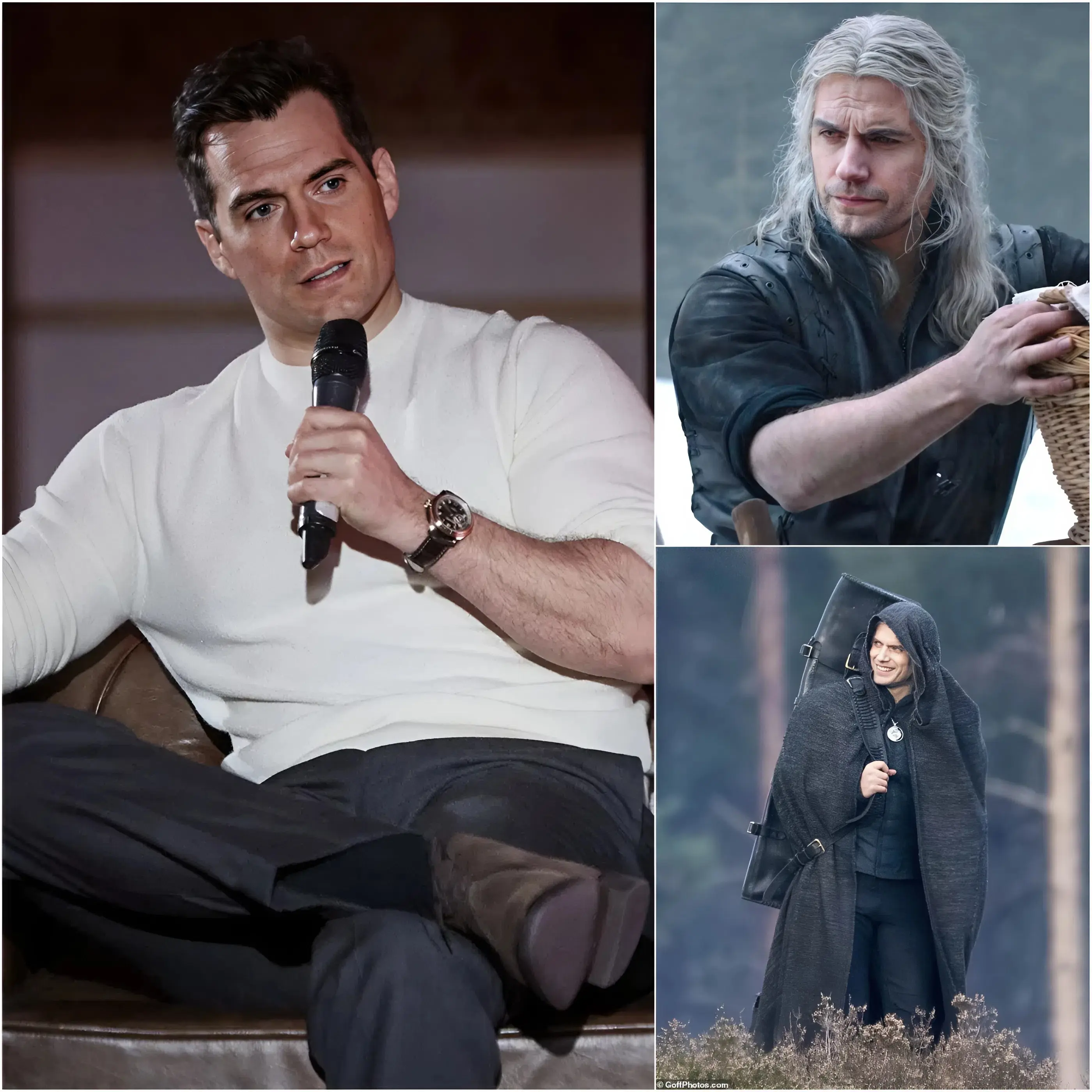
He kept saying things like, ‘Sorry, but this has to be done another way.’ Directors rolled their eyes at his persistence. Cavill believed small changes warped Geralt’s essence. A single wrong line could unravel the Witcher’s complexity. He fought for every detail, big or small. His notes often clashed with production schedules. Still, he refused to compromise on character truth. This stubbornness defined his portrayal.
‘That character would never act like that,’ he’d argue during rehearsals. Cavill studied Andrzej Sapkowski’s books religiously. Geralt’s stoic honor guided his every decision. He saw the Witcher as more than a monster slayer. Emotional depth mattered as much as sword fights. Crew members groaned at his book references. But Cavill knew fans expected fidelity. His insistence preserved Geralt’s moral core.
‘If you actually read the book, you would know this is impossible,’ he’d say pointedly. Some writers dismissed his input as overreach. Cavill wasn’t trying to undermine authority. He simply couldn’t betray the character he loved. Production pressures often favored speed over accuracy. He pushed back to honor the lore. His voice became the fans’ advocate on set. This tension fueled his transformative performance.
Every time, the answer was, ‘Henry, shut up and do the work.’ Directors prioritized deadlines over debates. Cavill understood the need for efficiency. Yet, silence felt like complicity in misrepresentation. He’d nod, then quietly adjust his acting. Subtle choices kept Geralt true to form. His rebellion was respectful but firm. The crew eventually respected his quiet resolve.
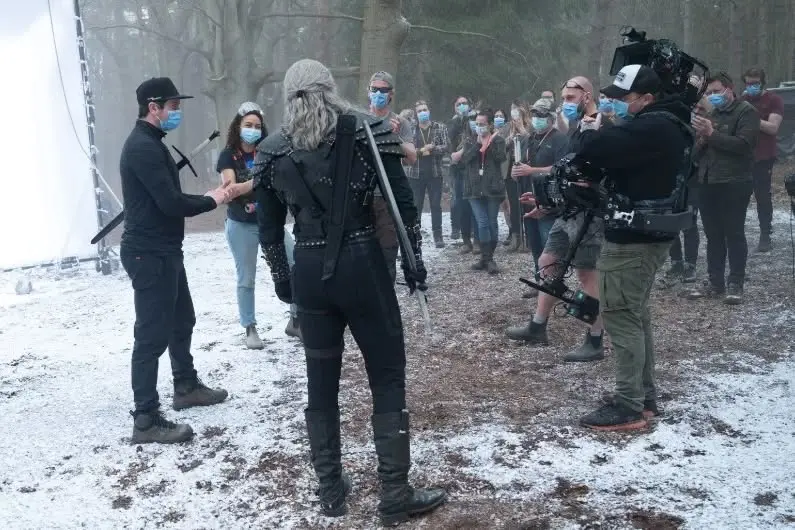
But I couldn’t just do the work—because Geralt wouldn’t do it that way. Cavill internalized the Witcher’s code of honor. Compromising felt like betraying a friend. He’d rehearse lines until they felt right. If a scene rang false, he’d suggest alternatives. Producers sometimes adopted his ideas grudgingly. His instincts often proved correct in hindsight. This dedication made Geralt unforgettable.
Geralt is capable of so much more, Cavill explains bluntly. The Witcher isn’t just a gruff swordsman. He’s a philosopher trapped in a brutal world. Cavill wanted to show Geralt’s quiet wisdom. Physicality alone couldn’t capture his soul. Emotional scenes required the same precision as fights. He fought for moments of vulnerability. These nuances enriched the entire series.
Cavill’s preparation went beyond memorizing lines. He trained with swords for hours daily. Muscle memory had to match Geralt’s effortless grace. He studied medieval combat techniques meticulously. Every swing needed to feel authentic. Makeup sessions lasted hours to perfect scars. He embraced the discomfort for accuracy. This rigor set a new standard on set.
The costume department faced Cavill’s scrutiny too. Armor had to fit Geralt’s practical needs. He rejected flashy designs for functional ones. Leather straps needed specific placements for mobility. He tested every piece during fight rehearsals. Adjustments improved both look and performance. His input streamlined action sequences. The final armor became iconic.
Cavill’s knowledge of the games influenced his choices. CD Projekt Red’s adaptation inspired him. He blended book lore with game mannerisms. Geralt’s growl had to match player expectations. Voice modulation took weeks to perfect. He recorded lines repeatedly for consistency. Fans noticed the seamless fusion. His performance bridged multiple Witcher universes.

Makeup artists dreaded Cavill’s morning inspections. White hair required precise styling every day. He’d point out uneven strands immediately. Scars needed consistent placement across episodes. He memorized every detail from the books. Continuity errors drove him crazy. His vigilance prevented costly reshoots. The final look became instantly recognizable.
Cavill’s advocacy extended to stunt coordination. Fight choreographers appreciated his input. He suggested moves rooted in Geralt’s experience. Spins and parries had to reflect centuries of combat. He trained alongside stunt doubles daily. Safety remained paramount despite intensity. His collaboration elevated action scenes. The battles felt visceral and believable.
Directors eventually valued Cavill’s perspective. Early resistance gave way to consultation. He’d join script meetings uninvited but welcome. His notes often resolved plot holes. Writers incorporated book elements he highlighted. Production quality improved with his involvement. His “annoying” habit became an asset. The show benefited from his passion.
Cavill’s relationship with the crew evolved too. Initial eye-rolls turned to mutual respect. They nicknamed him “Book Police” affectionately. He’d laugh and keep pushing for accuracy. Late-night shoots bonded the team. Shared commitment unified everyone. His leadership inspired better performances. The set became a creative family.
Fans recognized Cavill’s devotion immediately. Social media buzzed with praise for details. Geralt’s medallion twitched at magic—his idea. Subtle book references delighted hardcore readers. His performance honored the source material. Critics noted the authenticity he brought. Awards followed for his transformative role. His efforts resonated globally.
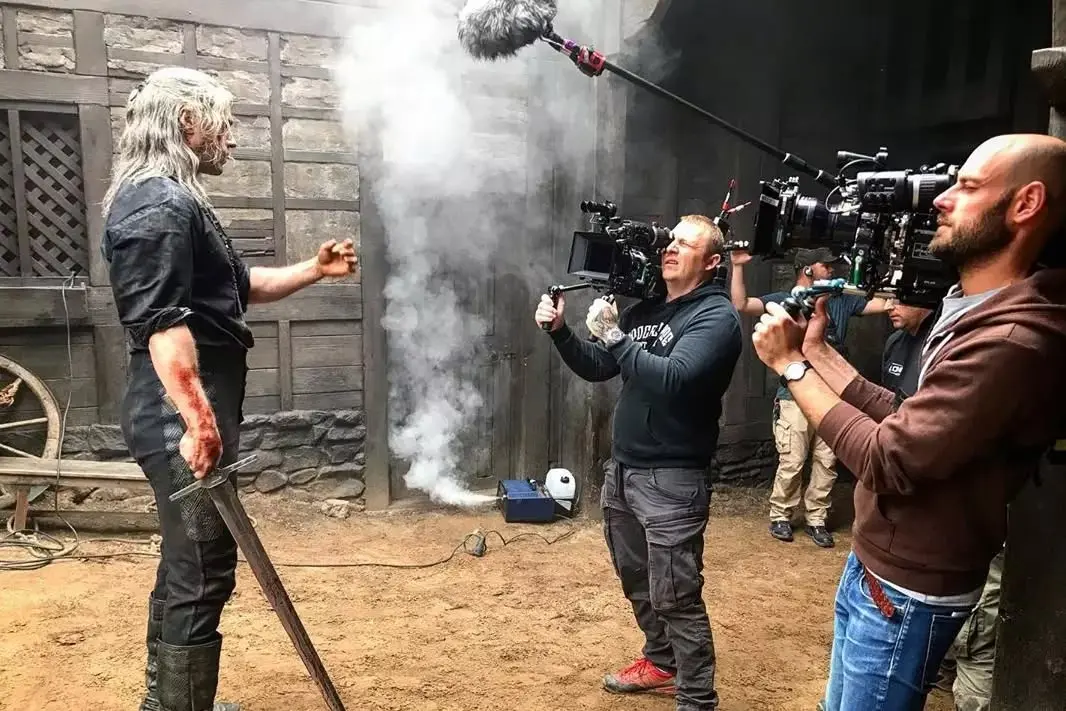
Cavill’s experience shaped his future projects. He now seeks roles with depth and lore. Superhero films no longer satisfy him. Complex characters demand his full commitment. He studies source material obsessively still. Directors seek his collaborative spirit. His Witcher journey set a benchmark. Actors now emulate his preparation.
The Witcher series succeeded beyond expectations. Cavill’s Geralt became the definitive portrayal. Book purists and gamers united in praise. His “annoying” persistence paid off spectacularly. Every corrected line strengthened the narrative. Viewership records shattered Netflix benchmarks. His legacy as Geralt endures. The monster slayer lives through him.
Henry Cavill’s blunt explanation reveals true artistry. Protecting Geralt’s integrity required courage. He faced pushback but never wavered. His passion transformed a role into legend. Future adaptations will measure against his standard. Cavill proved dedication trumps convenience. Geralt’s depth reflects his own. This commitment defines great acting.
Ultimately, Cavill’s journey inspires aspiring performers. Study your character beyond the script. Fight for authenticity despite resistance. Embrace being the “annoying” advocate. Depth emerges from obsessive care. His Geralt teaches this lesson vividly. Art demands personal sacrifice sometimes. Cavill’s example lights the path forward.
Breaking: Arkansas Activist Kerri Rollo Faces Mounting Consequences After Vandalizing Charlie Kirk Memorial
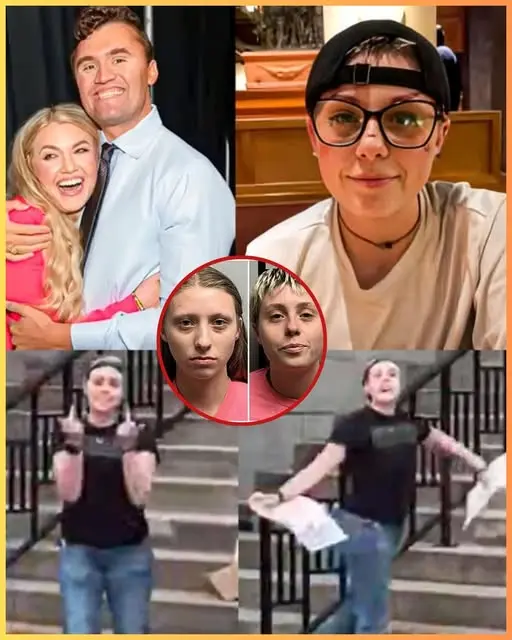
In the quiet town of Bentonville, Arkansas, a shocking act of vandalism has unraveled into a cascade of personal downfall for local activist Kerri Rollo. On September 16, 2025, just days after conservative firebrand Charlie Kirk's assassination, Rollo and her sister Kaylee were caught on video defacing a memorial at the Benton County Courthouse.
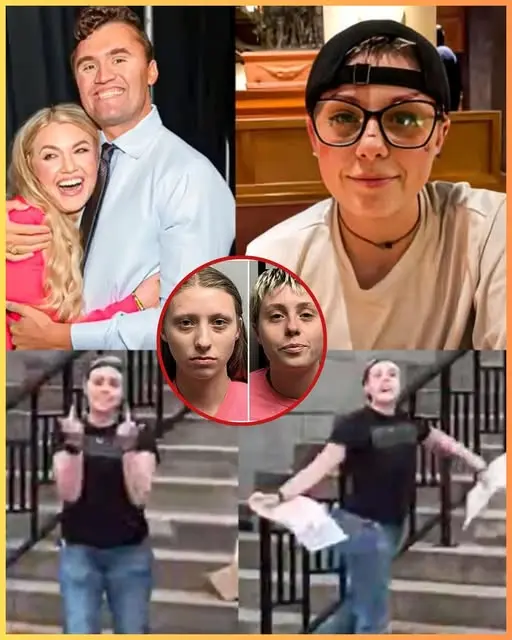
The makeshift tribute—candles, flowers, and signs honoring Kirk's legacy—was methodically destroyed. Rollo, 23, ripped posters, kicked over candles, and shouted obscenities, declaring Kirk "lived as he died—promoting violence." Her defiant middle finger to the camera captured the raw contempt.
This wasn't mere mischief; it was a bold statement from a self-proclaimed leftist at Arkansas Tech University. The video went viral, amassing millions of views and igniting outrage across social media platforms like X, where conservatives decried it as desecration.
Benton County Sheriff's Office acted swiftly. By September 18, both sisters were arrested on charges of first-degree criminal mischief, a misdemeanor punishable by up to one year in jail and fines. Kaylee, 22, faced an additional count of obstructing governmental operations.

The courthouse steps, once a site of solemn vigil, became a symbol of division. Justice of the Peace Joseph Bollinger condemned the act as "contempt and deliberate intolerance," vowing that such hatred wouldn't silence conservative voices.
As the story spread, Rollo's personal life imploded. Her employer, Bella's Table restaurant in nearby Bella Vista, fired her amid customer backlash. The eatery issued a statement distancing itself, emphasizing that her actions contradicted their community values.
Eviction followed suit. Reports confirmed Rollo was ousted from her Jonquilla Way residence, leaving her homeless and desperate. Local outlets like 5NEWS detailed how the swift public shaming accelerated her isolation.

In a twist of irony, Rollo turned to crowdfunding. A GoFundMe titled "FIGHT AGAINST F4CISM" launched on September 22, seeking $22,000 for legal fees. She claimed doxxing and First Amendment violations, pleading, "My sibling was fired—this is unconstitutional."
Donations trickled in, but sympathy was scarce. By late September, the campaign raised over $14,000, yet conservative donors trolled with mocking messages, turning it into a digital pile-on rather than a lifeline.
Social media amplified the schadenfreude. X users like @nicksortor posted, "A BIG can of FAFO has been opened," racking up 50,000 likes. Memes portrayed Rollo as the poster child for "actions have consequences."

Charlie Kirk's death on September 10 at Utah Valley University—gunned down during a speech—had already polarized the nation. Memorials nationwide became flashpoints, with similar vandalism in Phoenix drawing arrests.
Rollo's backstory emerged: a vocal activist with a prior drug paraphernalia charge in early September. Her non-binary identity (using "they" pronouns) fueled narratives of radicalism, though supporters argued she was targeted for free speech.
Legal proceedings dragged into October. Bond hearings set Kerri's at $15,000; she requested a public defender. Kaylee's was $7,500, with private counsel. Court dates loomed, promising more scrutiny.
By mid-October, the GoFundMe stalled at around $27,000, per X updates. Leftist backers contributed, but the overall tone remained hostile, with comments like "Enjoy your karma" dominating.

Bentonville's response was resolute. Sheriff Shawn Holloway declared, "We take vandalism of community memorials very seriously." The site was cleared, but the incident scarred the town's progressive-conservative divide.
Nationally, it sparked debates on cancel culture's double edge. Conservatives celebrated the fallout as justice; liberals decried it as mob rule, echoing Rollo's claims of harassment.
As November dawned, Rollo's pleas grew frantic. X posts showed her soliciting direct aid, but responses were cold. One viral thread mocked, "From vandal to victim—classic lib playbook."
The saga underscores America's deepening rifts. Kirk, founder of Turning Point USA, championed youth conservatism; his murder by a suspected leftist amplified fears of escalating violence.
Rollo's defenders dwindled. Even progressive circles distanced themselves, wary of endorsing property destruction amid grief. Her university remained silent, avoiding entanglement.
Financially ruined, Rollo faces mounting bills: legal, relocation, survival. Without steady support, her future hangs precarious, a stark contrast to her bold courthouse stand.

Critics argue this is poetic justice. "You don't trash a memorial and expect hugs," tweeted @IsabellaMDeLuca, garnering thousands of agreements.
Yet, a sliver of empathy persists. Some ask if the punishment fits—job loss and eviction for a misdemeanor? It raises questions on proportionality in polarized times.
Arkansas Tech, where Rollo studied, saw petitions for her expulsion, though none succeeded. Campus life for her, if any remains, is untenable.
The Benton County Courthouse now stands as a cautionary tale. Fresh memorials are guarded; vigils proceed with caution, honoring Kirk's unyielding spirit.
Rollo's story, from viral villain to virtual beggar, serves as a modern parable. In an era of instant infamy, one rash act can dismantle a life built over years.
As of November 4, 2025, no resolution in sight. Court outcomes pending, Rollo navigates homelessness and scorn. Her online cries echo unanswered.
This episode reminds us: grief is sacred, actions echo eternally. In Bentonville's shadow, the weight of consequences presses heavy, a sobering lesson for all.





